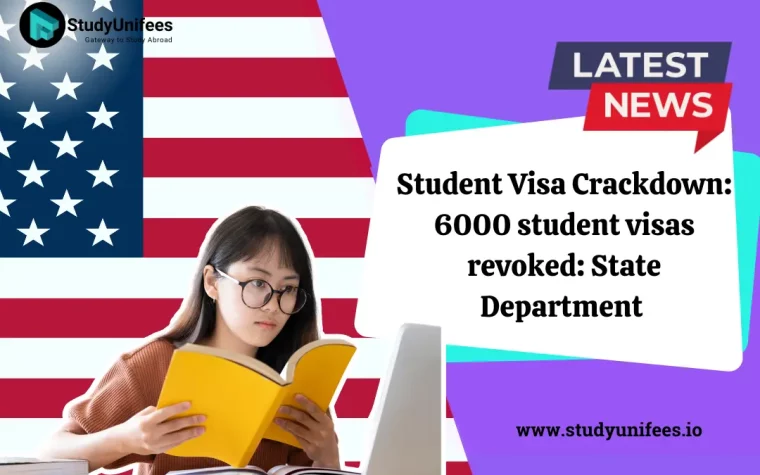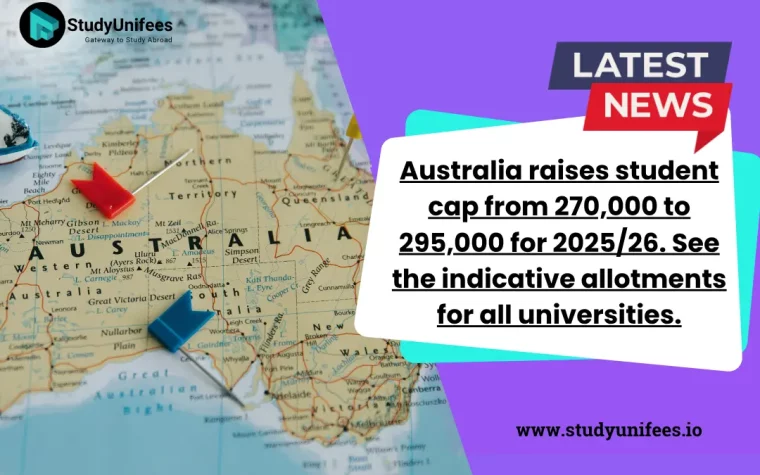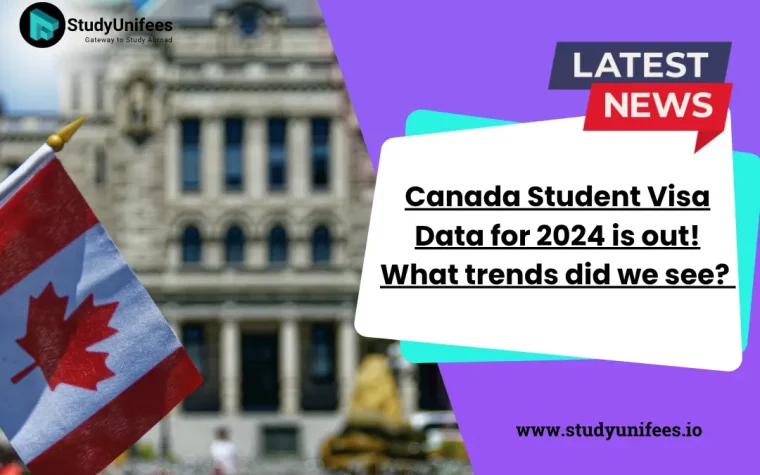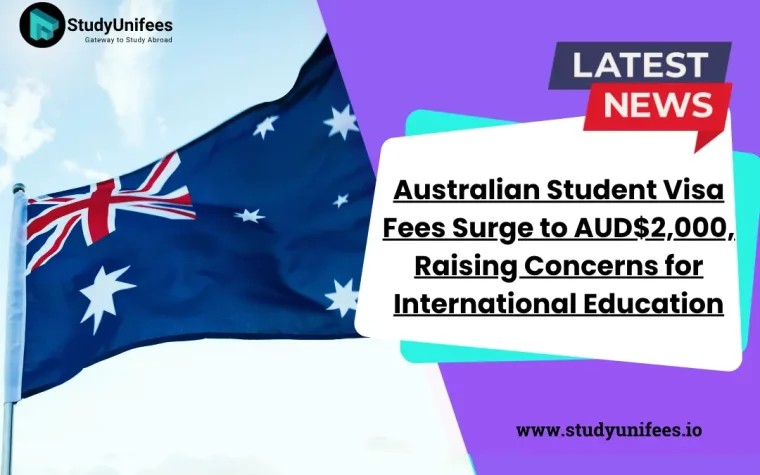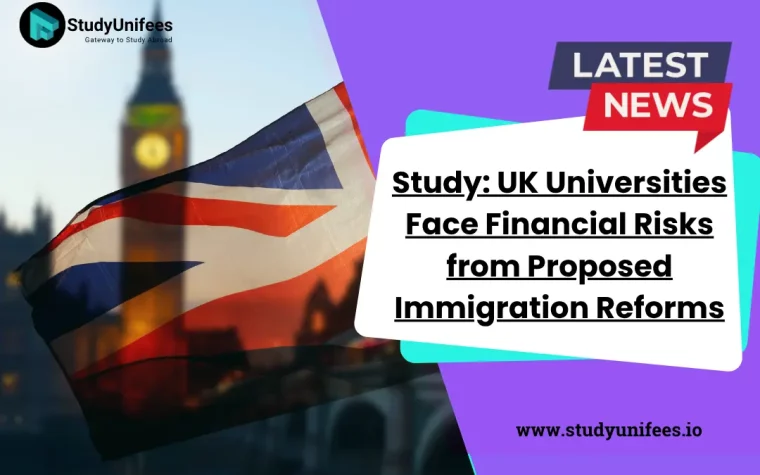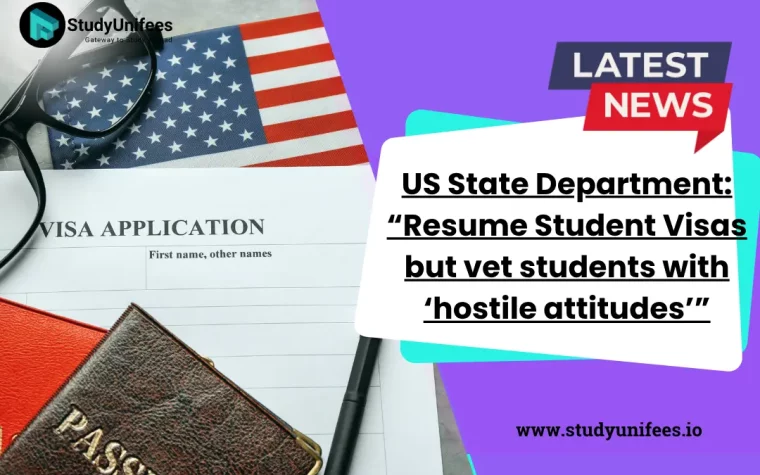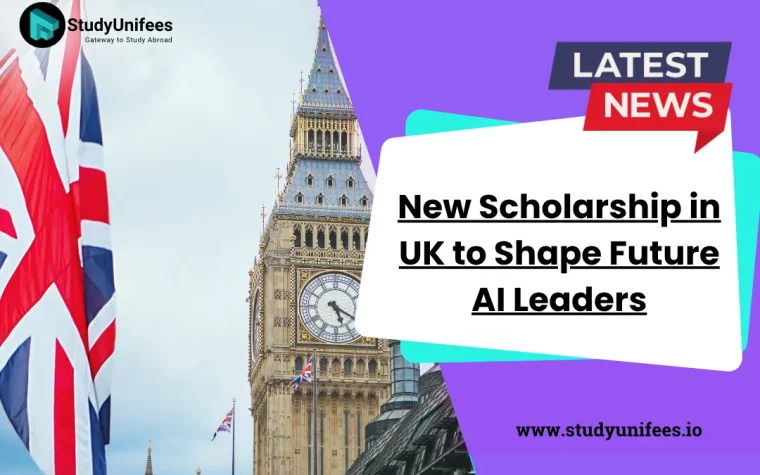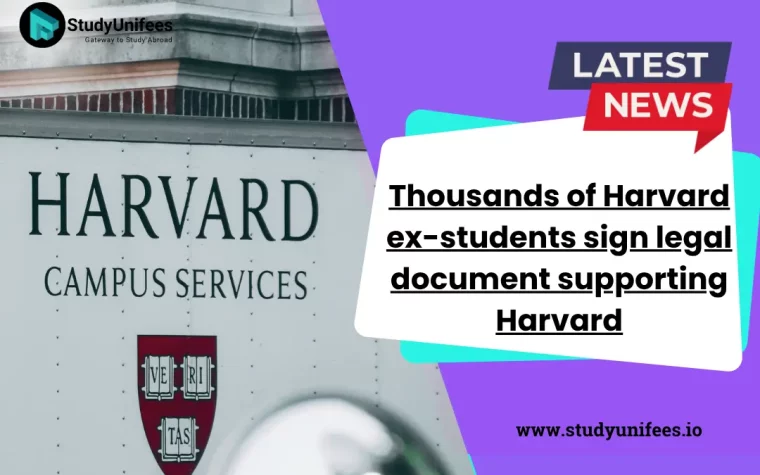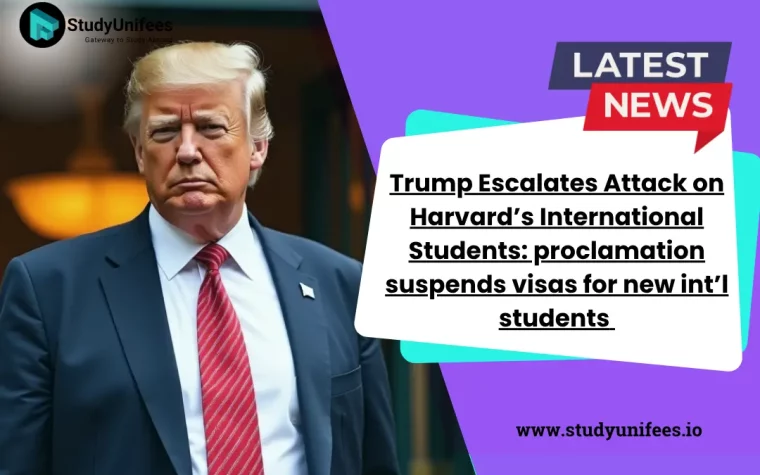Student Visa Crackdown: 6000 student visas revoked: State Department
A State Department official stated that this year over 6,000 international student visas have been revoked by the U.S. State Department—far surpassing previous counts under the Biden administration—though officials insist each case met legal or security criteria.
Who Was Affected—and Why
Of the thousands of students affected, most were due to minor infringements like DUI, assault and ‘burglary’.
Crime, Overstays, and Safety Concerns
Roughly 4,000 visa cancellations stem from arrests or convictions for offenses like assault, DUI, and burglary.
National Security Flags
Between 200 and 300 were revoked under a terrorism-related provision in the Immigration and Nationality Act. Officials cite activities such as fundraising for designated terror groups.
Politics, Protests, and Due Process
Students involved in pro-Palestinian protests—especially those deemed “hostile” or supportive of groups like Hamas—have faced heightened scrutiny and visa scrutiny. A notable case: Tufts PhD student Rümeysa Öztürk, detained after writing a critical op-ed.
Legal Pushback
Federal judges in multiple states—including Massachusetts, Wisconsin, and Montana—have issued emergency orders, pointing to due process concerns and overturning visa cancellations for students with minor or dismissed charges.
Controlling Campus Narratives
In a recent directive, U.S. embassies are now instructed to assess visa applicants’ online presence for “hostile attitudes” toward American values or culture, with private or limited visibility profiles flagged as suspicious.
AI-Based “Catch and Revoke” Approaches
Authorities are using AI tools to comb social media for expressions of support for terrorism or antisemitic content. These findings can prompt visa denials or revocations—even applying to existing visa holders.
Harvard’s Visa Crisis: Institutions in the Crosshairs
- The Trump administration stripped Harvard’s approval to enroll foreign students, threatening legal status for nearly 6,800 international students.
- The university responded with a lawsuit, condemning the move as overreach and an existential threat to academic freedom.
- Education experts warn these policies could pull the rug out from the U.S. higher-education model, eroding global trust and financial stability of campuses.
Ripple Effects: Enrollment, Economy, Diplomacy
NAFSA forecasts a 30–40% drop in new international student enrollment this fall. That falloff could translate to a 15% overall enrollment decline, taking about $7 billion out of the economy and putting 60,000+ jobs at risk.
Student Morale and Shifting Destinations
Many students—particularly from India—are feeling destabilized, exploring alternative education hubs like Canada and Germany. The fear over visa instability compounds concerns over future prospects.
Institutional Opposition
Universities and civil rights groups argue these practices trample due process and chill academic freedom. Several cases are now tied up in courtroom battles.
Why This Matters
There are several reasons why this is an important development. Other than just impacting the students whose visas were revoked, there are several broader ramifications.
Security vs. Liberty
The administration frames visa revocations as enforcing the rule of law—but critics warn they also raise real concerns about civil liberties and political targeting.
Academic Leadership at Stake
If international students retreat, U.S. universities risk losing talent, funding, and global influence—while other countries stand ready to fill that vacuum.
Legal and Social Fallout
Courts are becoming the battlefield. Policies meant to boost national security may backfire by damaging the trust that foreign students—and their families—have in American institutions.


